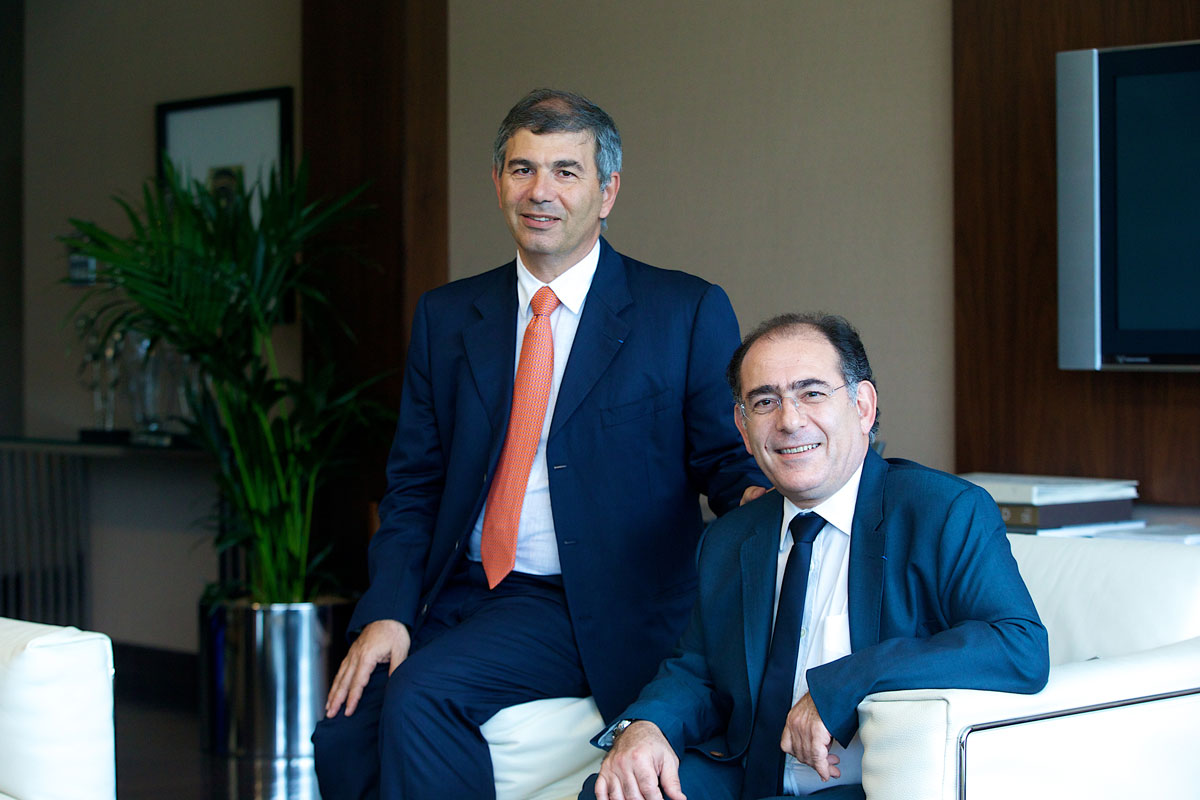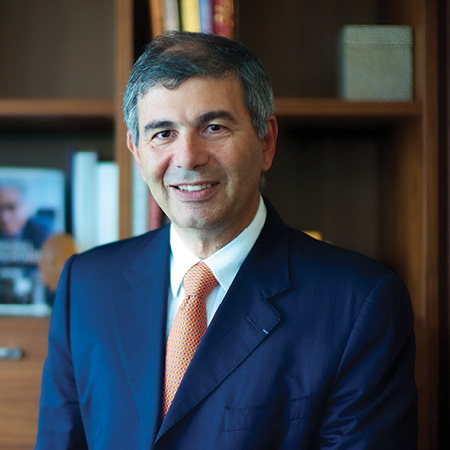It’s clear from the outset that Patrick Chalhoub is a people person. Despite a hectic agenda for him and his brother Anthony, with whom he shares the CEO role of the Chalhoub Group, he does not cut to the chase in his interview with The CEO Magazine, preferring instead to enjoy some banter.
‘The future life I dreamed up is very close to the one I realised’
With a cheery disposition, Patrick discusses Dubai’s warming weather and laughs about childhood essays. “When I was 14, we were told to prepare an essay at school about who we would like to be at age 40. I’m not sure how well I wrote that essay but the future life I dreamed up is very close to the one I realised,” he says. “I was never sure that I would end up joining the family business, but even then I was inspired by what my parents had built.”
The Chalhoub Group was founded in 1955 by Patrick’s parents, Michel and Widad Chalhoub, who wanted to bring French-style luxury retailers to the Middle East. The Group has since become a major player in the beauty, fashion and gift sectors across fourteen countries and with a network of more than 650 retail stores featuring brands like Louis Vuitton, Fendi, and Michael Kors, among others.
Despite its strong foundations and intimate knowledge of different regional markets, Patrick says this is not enough to stay relevant. “A business must remain resilient to changing circumstances, and the luxury sector in the Middle East is seeing a new wave of consumers, trends and economic growth,” he says.
We grew our small company into one with an international presence, but we still maintained the values of a small family business.
If a business were able to claim true resilience, it’s the Chalhoub Group. Despite a tumultuous history, with a civil uprising, restrictive legislation, and the Iraq War, the Group’s presence across the Middle East has endured, and even grown. With each new mark on the firm’s sixty-year timeline, it has successfully adapted to changing geo-political or fiscal circumstances.

“During the 70s, when I was selecting which subjects to study at college, I still wasn’t sure whether I would join the family business. But when the civil war broke out in Lebanon, this pushed me to choose subjects that would be relevant for working in the Chalhoub Group,” Patrick says. “When I eventually joined the company in 1979, it had 100 people working in it, and already a very good reputation and a strong conviction.”
From Kuwait to Dubai
For ten years, Patrick operated out of the firm’s former headquarters in Kuwait, where it was forced to move from Lebanon. During this time, he worked to expand the Chalhoub Group’s presence across the Gulf territories. In 1990, the group transferred to its current Dubai office following the Kuwait invasion. The retail arm of the Group began to take off in 1998, and by 2001 Patrick and Anthony had stepped into the lead role to speed up the expansion of the Group into new regions.
Patrick has now served as Co-CEO for sixteen years. “In the beginning I always felt that we had a market that was going to boom in the coming decade, because luxury was taking off in a big way. I wanted to make sure that we could ride that wave and really lead the market. We grew our small company into one with an international presence, but we still maintained the values of a small family business.”
Age of opulence drawing to a close
After a quarter century of strong economic growth for luxury sectors across the Gulf Cooperation Council (GCC) — including Saudi Arabia, Kuwait, the United Arab Emirates, Qatar, Bahrain, and Oman — the region is again facing headwinds from both familiar and new sources. Economic growth has slackened, leading consumers to tighten their purse strings. As the age of opulence draws to a close, the Chalhoub Group must again adjust to a changing landscape.
Not one to dwell on the past, Patrick waxes lyrical about the ‘new norm’ in the luxury sector, as a more informed and sophisticated consumer now demands greater service, end-to-end digital capability, and a greater focus on innovation. “We have to review our organisational structure in order to adapt to the ‘new norm,’” he says. “We will also have to reassess much of our investment and make some tough decisions.
“It can be very challenging to discard of old investments and processes that may not be relevant anymore, but leading change requires us to step out of our comfort zone and seek new initiatives.” Many leaders might raise an eyebrow at the thought of scrapping tried and true methods in favour of newer initiatives, with many preferring to lay low during economic downturns, but Patrick says it is a necessary pain for businesses that want to ride the next wave, which is swelling rapidly.
“Some people tell me, you are crazy to be implementing large new initiatives now. But being agile and embracing change is the only way to survive for the next twenty or thirty years. If you don’t, you might stabilise your profit today, but you will disappear tomorrow.”

